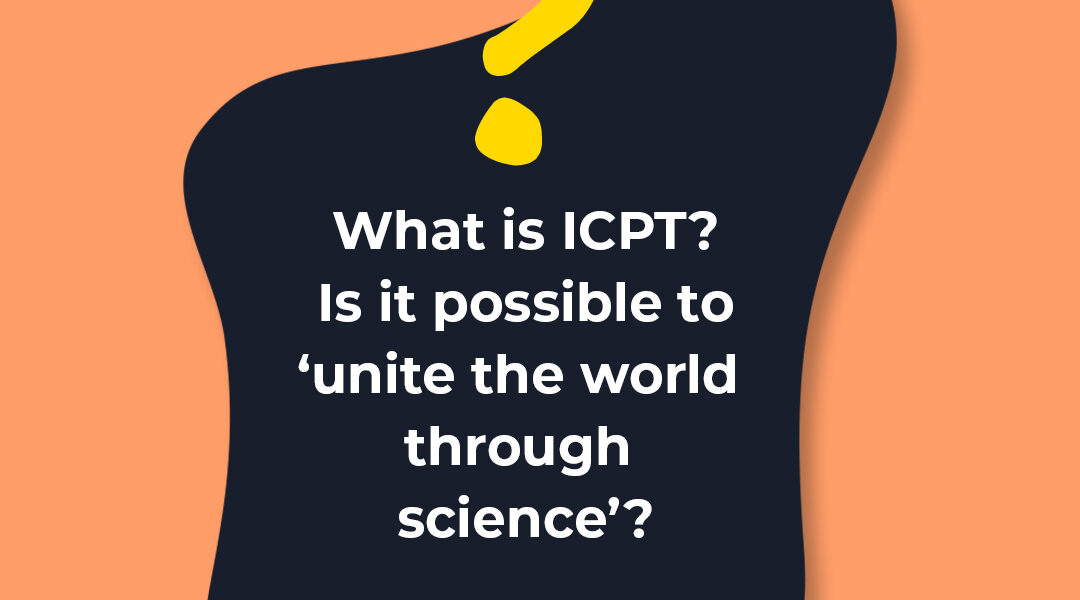
What is ICPT? Is it possible to ‘unite the world through science’?
Sometimes it is the passion for what you choose to focus on that determines the path your life will take. As seen in Omar’s story, it was his passion for physics and his willingness to continue studying that brought him out of Syria in the middle of the war. And it was the existence of an international centre like the ICTP that made it possible. In Trieste, Italy, the Abdus Salam International Centre for Theoretical Physics (ICTP) aims at bridging the inequality gap between countries worldwide in the field of science and research, creating a place for students and scientists from the Global South (GS) to connect with academics from around the world. Founded in 1964 by the physicists Abdus Salam and Paolo Budinich, it has recently celebrated its 60th anniversary.
Salam has been the director of the institute from 1964 to 1993, and his print and vision have been fundamental in the development of the ICTP as an institution first and foremost aimed at creating high level possibilities for GS’s students, researchers and scientists as he believed that “science is the common heritage of humankind”. Originally from Jhang, today’s Pakistan and back then British India, he has been a great mathematician, and physicist who researched on theoretical elementary particle physics. Together with Glashow and Weinberg, they won the Nobel Prize for Physics in 1979 for the “electroweak theory” that laid the groundwork for the 2012 discovery of the Higgs boson. At the same time, Salam was the first Pakistani, Muslim scientist to win this acknowledgement showing to the world– maybe – that science, religion and developing countries could walk together. With the creation of the ICTP, he had in mind a research centre on theoretical physics with special regards to the needs of these countries.
Salam at the time secured economic support from the Italian government, UNESCO and IAEA (International Atomic Energy Agency) and today it is a category-I institute of UNESCO. It literally catalyses scientific collaboration globally in maths and physics fields. The centre works to overcome all kinds of barriers, whether these are geographical, or regard gender, class or ethnicity and this is done through scientific programmes that in addition to training and education, provide also direct financial support to students. The objective is twofold, it aims both to ensure that the widest range of scientists participate in scientific activities, and to bridge the knowledge divide between the global North and South. How? Creating concrete possibilities.
Often, it is hard for young scholars to qualify for PhD programmes abroad and the ICTP offers opportunities for these students through its Postgraduate Diploma Programmes, opportunities made in collaboration with local universities in the various fields of physics and mathematics that aim to give them the boost they need to be accepted into doctoral programmes anywhere in the world. Moreover, once finished their PHDs, ICTP supports their scientific careers making them gain training, experience and employment. In parallel, students are spurred to continue studying and doing research both in prestigious universities and most all, in their home countries. The ICTP offers also possibilities of shorter periods of training in Italian laboratories or the possibility to do the PhD thesis with a co-supervisor of the centre.
By the way, once back home scientists find the same initial situation facing onerous and taxing demands and intellectual isolation as they cannot contribute to the research fields. To overcome these scenarios, the ICTP helps these students to sustain their efforts back home also through long-running Associates Programme. In this direction, it also provides assistance for regional activities to physicists and mathematicians in their territories with the final aim to boost and balance the scientific level of individuals, groups or institutes with the western ones. The goal is also to stimulate scientists’ networking in and among developing countries.
ICTP is also committed to international cooperation through science. How? Through an annual programme of workshops and conferences that attracts more than 6000 scientists from more than 150 countries every year. It fosters scientific dialogue in the developing world through partner institutes in Brazil, China, Rwanda and Mexico whose scientists have access to ICTP’s network and expertise.
Moreover, the ICTP Library is an invaluable resource of books and journals to which scientists do not have access to in their own countries. The whole ICTP community can now download and read an ever-growing number of online resources with the mission of fostering open science. Nowadays, the historical ICTP Book Donation Programme, launched by Salam to provide Global South countries of libraries with advanced science books, has shifted to open access initiatives that make science available to everyone, everywhere.
Science is a shared language that transcends geographic boundaries and today’s impact of ICTP in advancing scientists’ careers in developing countries is significant as students from the Global South are increasingly motivated to apply. Nevertheless, still today many countries do not have the infrastructure or the educational provision to support the local growth of science and technology. There is not still a clear answer to the initial question on whether science could unite the world, but institutions like ICTP look at this union and mind at filling the gap as science can be a driving force in the success of any nation, as it can contribute to the economic well-being and the individual fulfilment of its people. At the moment, the ICTP alumni can be found in 188 countries around the world and these in their turn, share their knowledge with new generations of scientists.


